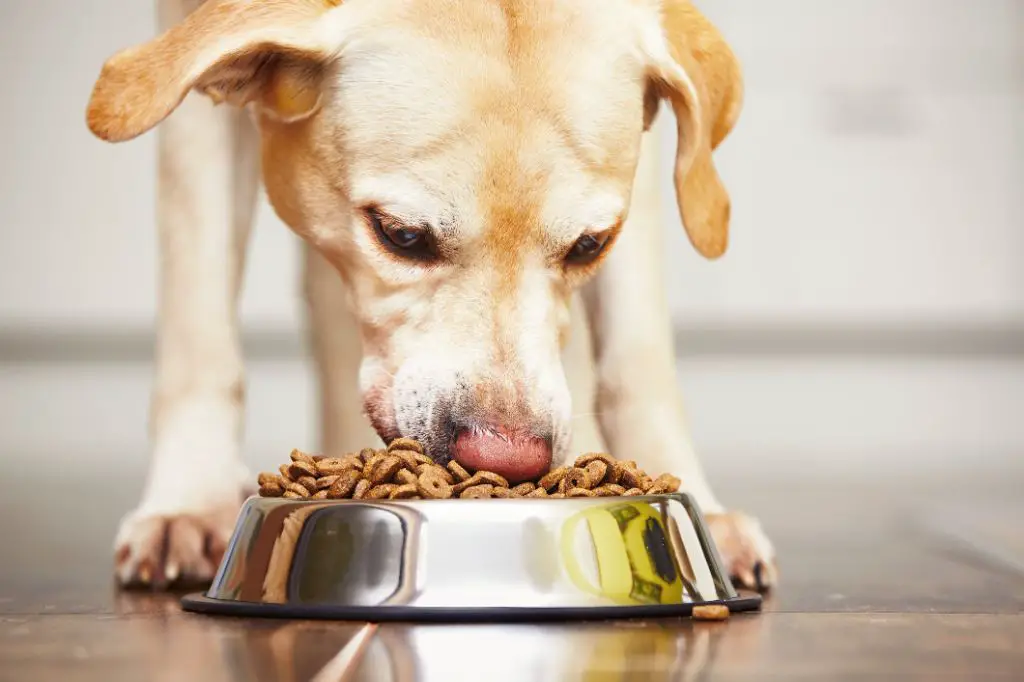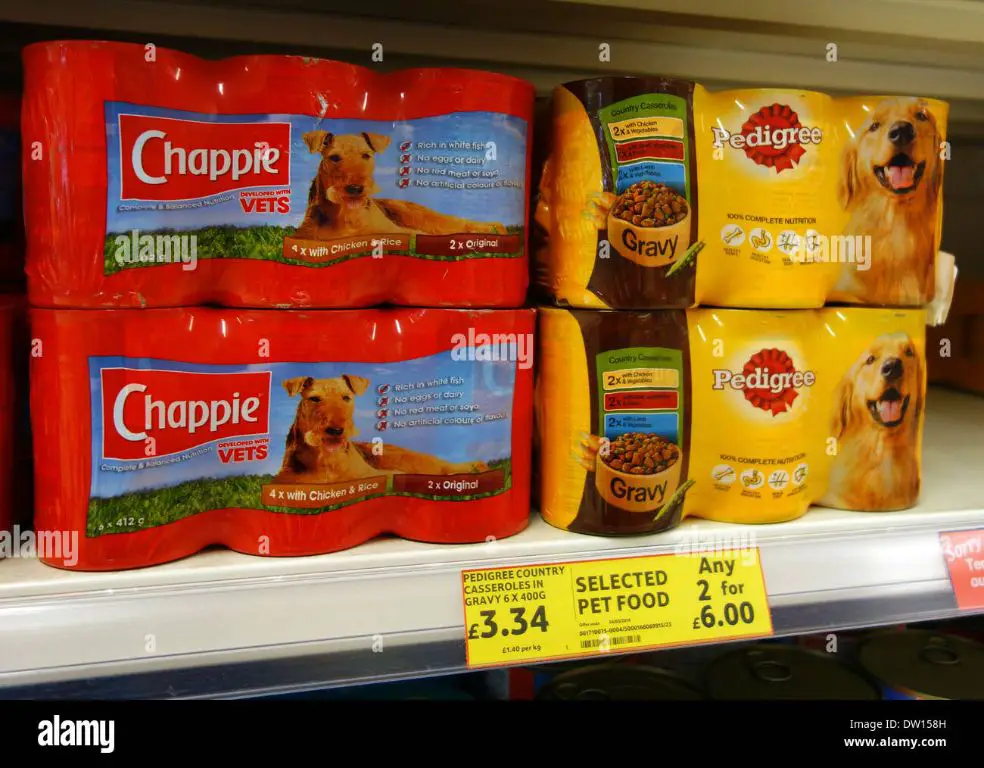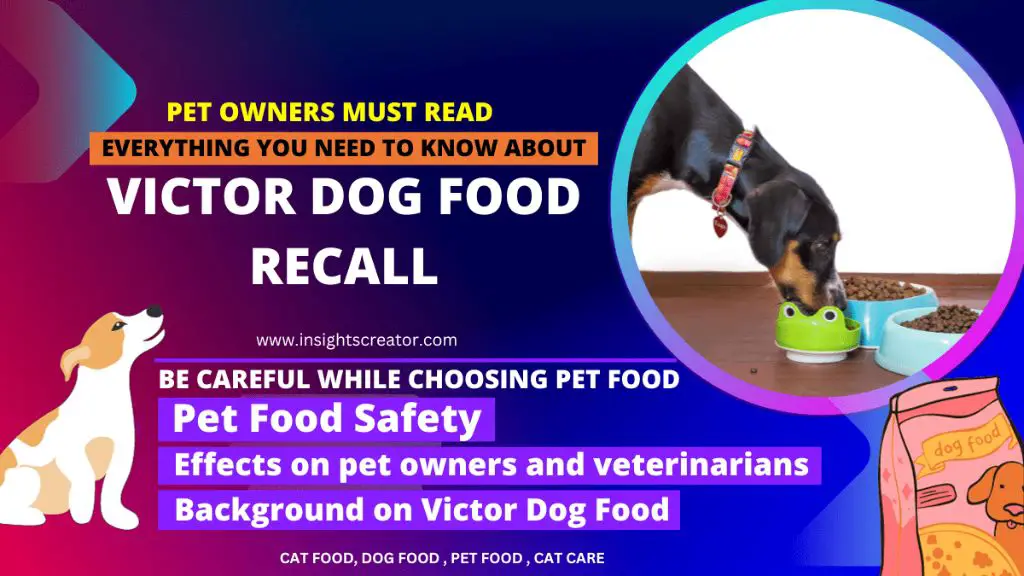Introduction
In early 2023, multiple popular brands of dog food were recalled by the U.S. Food and Drug Administration (FDA) due to potentially elevated levels of aflatoxin, a mold byproduct that can be fatal to dogs if consumed in high quantities. This concerning news has left many pet owners worried about the safety of commercial dog food and wondering what foods were affected. This article provides an overview of the recent dog food recall, including which brands and products were recalled, the reasons behind the recall, FDA testing and findings, potential dangers to pets, and steps pet owners can take to protect their dogs. The goal is to summarize the key details around this significant recall and help readers determine if they need to switch dog foods or take any precautions to keep their pets safe.
History of Dog Food Recalls
Dog food recalls due to concerns over contamination and illness are unfortunately not a new phenomenon. Major recalls date back over a decade and point to systemic issues with pet food manufacturing and sourcing that the industry is still grappling with today.
One of the largest recalls came in 2007, when Menu Foods issued a massive recall on over 60 million containers of wet dog and cat food. The food was contaminated with melamine, an industrial chemical used to artificially inflate the protein content in the food. This recall involved over 100 different brands and led to thousands of pets becoming ill with kidney problems. It shed light on the practice of importing wheat gluten and other ingredients from China that contained unapproved additives.
In 2012, Diamond Pet Foods recalled multiple lines of dry dog food made at one of its manufacturing facilities due to potential Salmonella contamination. Over 30 brands were affected, with reported illnesses in both pets and some humans who handled the tainted food. Quality control failures at the production plant were blamed as the cause.
Listeria recalls have also impacted big brands like Pedigree and Nutro over the years. And in 2018, several lines of wet dog food from J.M. Smucker Company were recalled due to elevated levels of beef thyroid hormone that could cause adverse health effects.
These examples illustrate that major dog food companies are vulnerable to product defects and contamination at their manufacturing and ingredient supplier sites. And they show that recalls are often massive in scope when issues are discovered, underscoring systemic problems with pet food production that still require improvement and oversight.

Recent Dog Food Recalls
In recent years, there have been several major dog food recalls issued by the FDA due to potentially harmful contaminants. Here are some of the most notable recent recalls:
January 2019: Hill’s Pet Nutrition – Hill’s Prescription Diet and Science Diet dog foods were recalled due to potentially elevated levels of vitamin D. Excess vitamin D can cause vomiting, loss of appetite, increased thirst, increased urination, excessive drooling, weight loss, and joint issues.
December 2018: Ahold Delhaize – The company issued a recall for Nature’s Promise Chicken & Brown Rice Dog Food due to excess levels of vitamin D discovered during an FDA inspection. Too much vitamin D can lead to kidney failure in dogs.
June 2018: K9 Natural – The New Zealand based company voluntarily recalled two batches of its frozen dog food due to potential listeria contamination. Listeria can cause vomiting, diarrhea, and fever in dogs.
March 2018: Smokehouse Pet Products – The company recalled bags of dog treats over concerns of potential listeria contamination. Listeria poses a health risk to both pets and humans.
February 2018: Redbarn Pet Products – Redbarn issued a recall for its 7-inch Bully Sticks dog chews due to potential salmonella contamination. Dogs with salmonella can develop diarrhea, fever, and vomiting.
Brands and Products Affected
The brands and product lines that have been affected by the recent FDA dog food recall include:
- Sportmix Energy Plus Lot Exp 03/02/22/05/L2, 03/02/22/05/L3
- Sportmix Energy Plus Lot Exp 03/02/22/05/L2
- Sportmix Premium High Energy Lot Exp 03/03/22/05/L3
- Sportmix Premium High Energy Lot Exp 03/02/22/05/L2
- Pro Pac Adult Mini Chunk Lot 03/03/22/05/L3
- Splash Fat Cat 32% Lot 03/03/22/05/L3
The recall involves certain lots of Sportmix pet food products, which are manufactured by Midwestern Pet Foods. The FDA stated that the recalled Sportmix products contain potentially fatal levels of aflatoxin, which is produced by the Aspergillus flavus mold.

Reasons for the Recalls
The recent dog food recalls by the FDA were primarily due to potential salmonella contamination. Salmonella is a bacteria that can cause illness and infection in both animals and humans. Contaminated pet food and treats can put dogs at risk of contracting salmonella if ingested.
Pet food can become contaminated with salmonella at any point during production, including during processing, packaging, or shipping. For dry food, salmonella is often introduced during the ingredient sourcing, especially ingredients like corn, wheat, soybean meal, and other plant-based proteins.
Wet and canned foods have also been recalled due to salmonella risks from raw ingredients, especially raw meat products. Cross-contamination can also occur if facilities are not properly cleaned between processing different ingredients.
Other causes for FDA recalls include listeria monocytogenes contamination, high levels of Aflatoxin, and misformulated products that did not contain proper amounts of vitamins and minerals. Each of these issues poses potential health risks to pets if consumed.
By recalling products, manufacturers seek to remove contaminated and unsafe food from shelves and minimize the number of animals affected. However, pet owners should remain vigilant about checking recall alerts.
FDA Testing & Investigation
The FDA routinely samples and tests dog food products to check for potential contaminants and hazards. When a certain number of samples test positive for a contaminant, the FDA launches a full investigation into the source.
The FDA’s testing processes check for a variety of potential hazards like salmonella, listeria, heavy metals, and toxins. Their labs use advanced equipment and technology like whole genome sequencing to identify contaminants and determine if they pose a health risk.
If the FDA detects a potential hazard during testing, they notify the producing company immediately. The company is responsible for investigating the source, issuing a recall if necessary, and implementing fixes to prevent future contamination.
During a full investigation, the FDA works to identify where in the production chain the contamination occurred. This helps pinpoint the root cause, whether it’s an issue at a supplier facility, during transport, or within the pet food manufacturing plant.
The FDA also inspects the facilities of companies who have issued recalls. They examine the plant’s safety processes, equipment, cleaning procedures, employee training, and more. Their goal is to ensure the issue is fully resolved and prevent it from happening again.
Dangers and Risks
Contaminated pet food poses serious health dangers and risks to pets that consume it. The contaminants involved in recent dog food recalls include salmonella, mold toxins, and excess levels of Vitamin D. These can cause severe illness or even death in dogs and cats.
Salmonella is a bacteria that causes food poisoning. Pets infected with salmonella can experience vomiting, diarrhea, fever, and abdominal pain. While some pets recover fully with treatment, salmonella can be fatal in rare cases. Puppies, kittens, senior pets and those with compromised immune systems are most vulnerable.
Myxotoxins from mold can also contaminate pet food. Ingesting mycotoxins can cause a condition called tremorgenic mycotoxicosis, leading to tremors and seizures. High levels can potentially be lethal. Mycotoxins have been involved in past pet food recalls and pose an ongoing contamination risk.
Excess Vitamin D is also extremely dangerous when oversupplemented in dog food. While proper levels are healthy, too much Vitamin D causes a condition called hypervitaminosis D, leading to vomiting, loss of appetite, increased thirst and urination, seizures, kidney or heart failure, and even death. Vitamin D toxicity was responsible for a major dog food recall in 2018.
Given the potentially severe effects of contaminated dog food, it’s critical for pet owners to check for recalls and stop feeding recalled products immediately. Veterinary treatment may be necessary if a pet becomes ill after eating contaminated food. Careful inspection of dog food labels and batches can help identify recalled products before they cause harm.
What Pet Owners Should Do

Pet owners who have purchased recalled dog food should stop feeding it to their dogs immediately. Even if your dog seems fine after eating the recalled food, there could still be health risks from contaminants.
Check your shelves and refrigerators for any of the affected brands and types of dog food and throw them away securely. You can find the full list of recalled products on the FDA’s website.
If you still have unopened packages of recalled food, you should return them to the seller for a refund. Pet food companies usually provide reimbursement if you reach out to their customer service.
If your dog already ate any of the recalled food, be vigilant about signs of illness. Symptoms could include vomiting, diarrhea, loss of appetite, or fever. If you notice any concerning issues, take your dog to the veterinarian right away.
Your vet can run tests to check for contaminants and provide supportive care as needed. Be sure to bring along any packaging you still have from the recalled food.
Going forward, check the FDA pet food recalls page regularly to stay updated on any new recalls. Avoid dubious brands and choose major companies with strong food safety standards.
Report any potential cases of illness to the FDA so they can investigate further. With awareness and proper response, we can prevent these products from harming more pets.
Preventing Future Recalls
There are several steps pet food manufacturers and the FDA can take to improve quality control and prevent future recalls:
-
Pet food manufacturers need to implement stricter quality control and testing procedures. This includes testing raw ingredients as well as final products for contamination and adhering to proper manufacturing processes.
-
The FDA should increase inspections and audits of pet food manufacturing facilities to ensure they are following proper protocols.
-
The FDA needs to establish mandatory safety standards and regulations for pet food manufacturing. Currently, many standards are voluntary. Making them mandatory would hold companies more accountable.
-
Pet food companies need to be more transparent about their ingredients, manufacturing processes, and quality control procedures. This allows consumers to make more informed choices.
-
The FDA should create a comprehensive database to track consumer complaints and analyze them for patterns to catch potential issues sooner.
-
Consumers should report any suspected issues with pet foods to the FDA to help identify problems faster.
-
The pet food industry should invest in research to better understand the impacts of ingredients, processing, storage, etc on pet food safety.
With improved manufacturing standards, testing, inspection, and consumer awareness, the pet food industry and regulatory bodies can help prevent tragedies like the recent recalls from occurring in the future.
Conclusion

In summary, dog food recalls can be dangerous and even life-threatening for pets. Brands like Hill’s, Taste of the Wild, and more have recently recalled products due to concerning levels of vitamin D, excess moisture content, salmonella contamination, and other issues. While the FDA investigates and works to prevent future problems, it’s essential for pet owners to stay updated on recalls. Checking the FDA’s website regularly, signing up for email alerts, and monitoring pet food companies can help ensure you don’t feed any recalled brands or batches. If your dog displays symptoms of illness like vomiting, diarrhea, loss of appetite, or other concerning signs after eating a recalled food, bring them to the vet right away. By staying vigilant and informed, we can keep our canine companions safe and healthy.